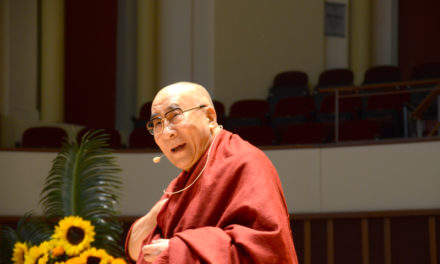In Tuesday’s edition of the Wheel, College freshman Brian Zhao wrote an excellent piece on his experiences with other Emory students. Mainly, he observed that many of his peers don’t appear to be taking advantage of the stellar academic environment that Emory has to offer.
“What makes a college a college is not having a faculty of top-notch professors or a beautiful campus, but students who all believe they can reach the top in their respective fields of interest,” he wrote.
“Perhaps part of growing up is realizing you can’t achieve all of your dreams, but if you never had any to begin with, think about how low of a place you will end up at. If you don’t have anything lofty to aspire to, nothing will motivate you to do even mediocre things.”
My compliments to Mr. Zhao for an insightful and timely article. Though Emory’s reputation as a top 20 institution is laudable, the reputation of the school alone doesn’t automatically guarantee its undergraduate or graduate students success in life.
Last month, Cracked.com Senior Editor Jason Pargin (aka David Wong) wrote a piece entitled “6 Harsh Truths That Will Make You A Better Person.” (While Cracked is known for its high-quality humor writing, every so often their writers produce material that goes beyond humor into the realm of intelligent, piercing honesty. This is one of those pieces.) In this piece, Pargin breaks some harsh truths about reality to readers who might be struggling to find their place in society. Just going through the motions of life and trying to be a good person, he argues, isn’t enough. Rather, it is the process of doing something productive or creative that will make a person valuable to others.
“Because that’s the step that gets skipped – it’s always ‘How can I get a job?’ and not ‘How can I become the type of person employers want?’ It’s ‘How can I get pretty girls to like me?’ instead of ‘How can I become the type of person that pretty girls like?’ See, because that second one could very well require giving up many of your favorite hobbies and paying more attention to your appearance, and God knows what else. You might even have to change your personality.”
That’s the trick to the whole higher education experience that no one ever really talks about. Despite the fact that we are all taught that life magically works in a particular pattern – “Go to college, graduate, get a job, make money, be successful …” and so on – just going through the motions of that pattern doesn’t guarantee success. So many people have bought into the idea of that pattern that virtually everyone has either earned their bachelor’s degree already, is earning their degree or is returning to school earn a degree.
In other words, the job market is inundated with people who have degrees (even graduate and professional degrees like law) to the point that just having the degree is not enough. Rather, the entirety of your resume – all of your professional skills, experience and academic accomplishments combined – is what a future employer or academic institution will consider. What do you truly know and understand? How have you developed yourself as a person? What can you actually do that is meaningful?
Making more money later in life is no longer a good enough reason to attend college. Forbes, back in 2006 in an article titled “Five Reasons to Skip College,” pointed out that the cost of education is simply not as profitable in comparison to other higher-yield sources of income. “Put $160,000 – the approximate cost of a Harvard education – into municipal bonds that pay a conservative 5 percent, and you’ll have saved more than $500,000 in 30 years. That’s far more than the average college grad will accumulate in the same amount of time.”
What’s more, an increasing number of people have begun to question the entire value of the college experience in the first place. The Thiel Foundation, a project started in 2011 by Paypal founder Peter Thiel, annually awards 20 young adults $100,000 grants to not attend college for two years and instead develop new ideas in business, science and technology. Award winners have included people with a wide variety of interests and skills, including information technology, nuclear physics, public health, education and mechanical engineering.
And the majority of these individuals are still not old enough to legally buy alcohol.
Without actually taking the time to use the Emory experience for what it is supposed to be – a chance to expose yourself to different ideas, experiences and opportunities that will make you a better person – all you are accomplishing is stumbling your way through classes and wasting time. You could have just as easily accomplished that at your local community college, and I guarantee you that the kid from the Thiel Foundation who spent two years innovating will have both less debt and a more appealing resume than you will.
While it may be challenging to overcome the instinct to just blunder through your studies without intentionality or focus, I would encourage you to take Brian Zhao’s words to heart. Your future self will thank you for the additional effort.
David Giffin is a second year Masters in Theological Studies student at the Candler School of Theology from Charleston, Ill.
The Emory Wheel was founded in 1919 and is currently the only independent, student-run newspaper of Emory University. The Wheel publishes weekly on Wednesdays during the academic year, except during University holidays and scheduled publication intermissions.
The Wheel is financially and editorially independent from the University. All of its content is generated by the Wheel’s more than 100 student staff members and contributing writers, and its printing costs are covered by profits from self-generated advertising sales.





Agreed.